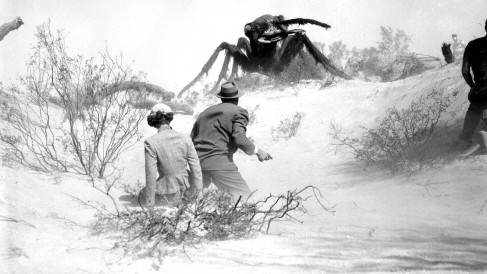What do you call permafrost when it isn't permanent? That's the reality these days in Alaska as climate change continues chugging underway. The New York Times recently published an article about this with some interesting visuals:
"The Arctic is warming about twice as fast as other parts of the planet, and even here in sub-Arctic Alaska the rate of warming is high. Sea ice and wildlife habitat are disappearing; higher sea levels threaten coastal native villages.
But to the scientists from Woods Hole Research Center who have come here to study the effects of climate change, the most urgent is the fate of permafrost, the always-frozen ground that underlies much of the state.
Starting just a few feet below the surface and extending tens or even hundreds of feet down, it contains vast amounts of carbon in organic matter — plants that took carbon dioxide from the atmosphere centuries ago, died and froze before they could decompose. Worldwide, permafrost is thought to contain about twice as much carbon as is currently in the atmosphere.
Once this ancient organic material thaws, microbes convert some of it to carbon dioxide and methane, which can flow into the atmosphere and cause even more warming. Scientists have estimated that the process of permafrost thawing could contribute as much as 1.7 degrees Fahrenheit to global warming over the next several centuries, independent of what society does to reduce emissions from burning fossil fuels and other activities."
Full Article Available at: Alaska’s Permafrost Is Thawing
While thawing the full depth of permafrost in Alaska would take millennia, there's a distinct possibility that more than enough will thaw to dramatically change the ecology in these regions, and also further contribute to rising global temperatures. Scientists are studying the permafrost up there to be able to create more accurate models of different climate scenarios, and if you'd like to read up more, check out the full article above. Feel free to commend/discuss.
"The Arctic is warming about twice as fast as other parts of the planet, and even here in sub-Arctic Alaska the rate of warming is high. Sea ice and wildlife habitat are disappearing; higher sea levels threaten coastal native villages.
But to the scientists from Woods Hole Research Center who have come here to study the effects of climate change, the most urgent is the fate of permafrost, the always-frozen ground that underlies much of the state.
Starting just a few feet below the surface and extending tens or even hundreds of feet down, it contains vast amounts of carbon in organic matter — plants that took carbon dioxide from the atmosphere centuries ago, died and froze before they could decompose. Worldwide, permafrost is thought to contain about twice as much carbon as is currently in the atmosphere.
Once this ancient organic material thaws, microbes convert some of it to carbon dioxide and methane, which can flow into the atmosphere and cause even more warming. Scientists have estimated that the process of permafrost thawing could contribute as much as 1.7 degrees Fahrenheit to global warming over the next several centuries, independent of what society does to reduce emissions from burning fossil fuels and other activities."
Full Article Available at: Alaska’s Permafrost Is Thawing
While thawing the full depth of permafrost in Alaska would take millennia, there's a distinct possibility that more than enough will thaw to dramatically change the ecology in these regions, and also further contribute to rising global temperatures. Scientists are studying the permafrost up there to be able to create more accurate models of different climate scenarios, and if you'd like to read up more, check out the full article above. Feel free to commend/discuss.

